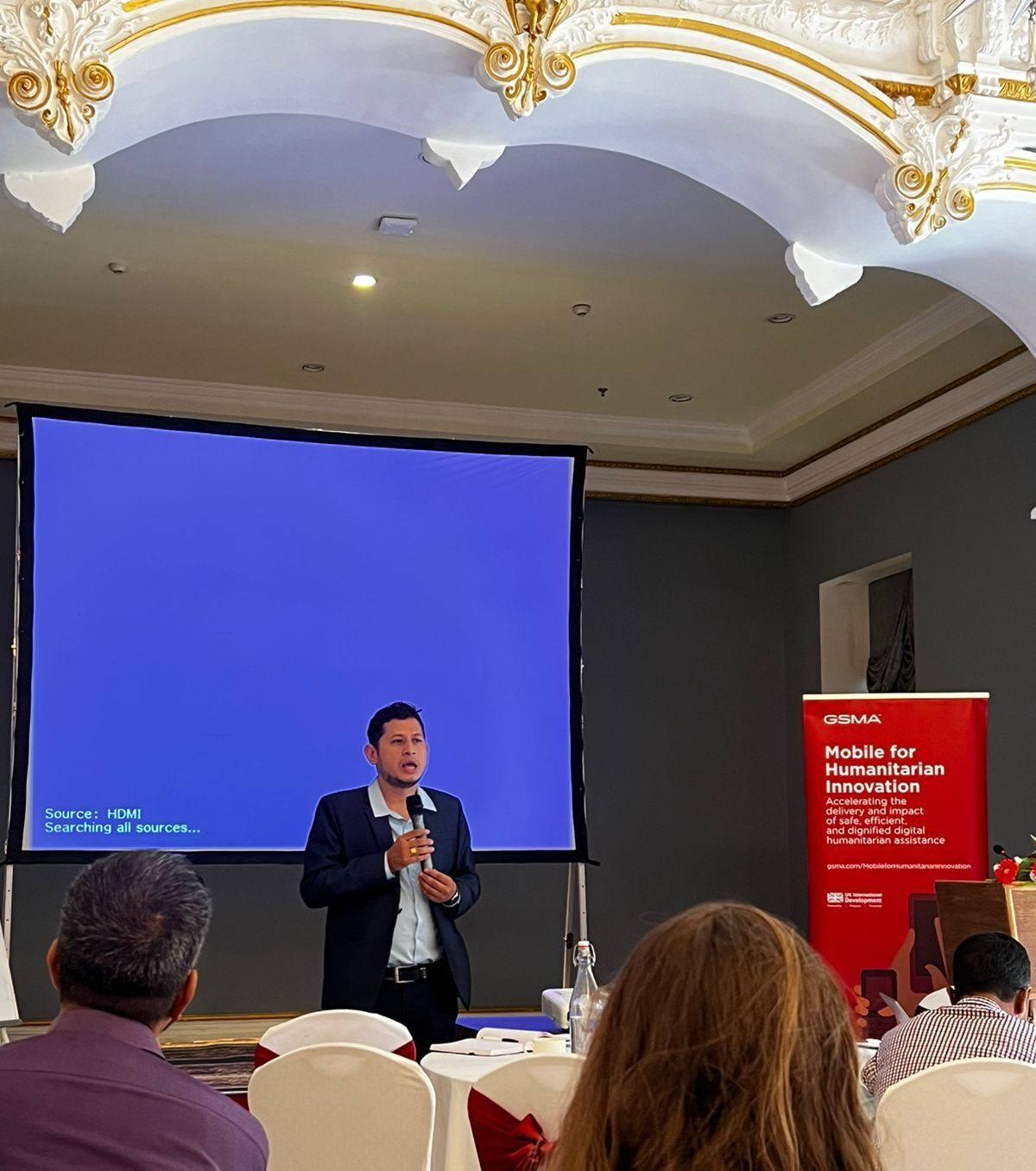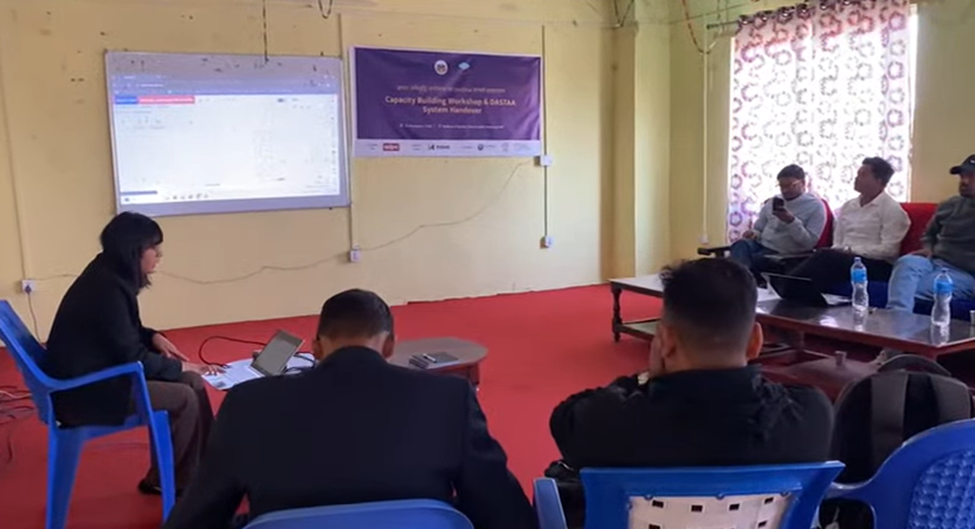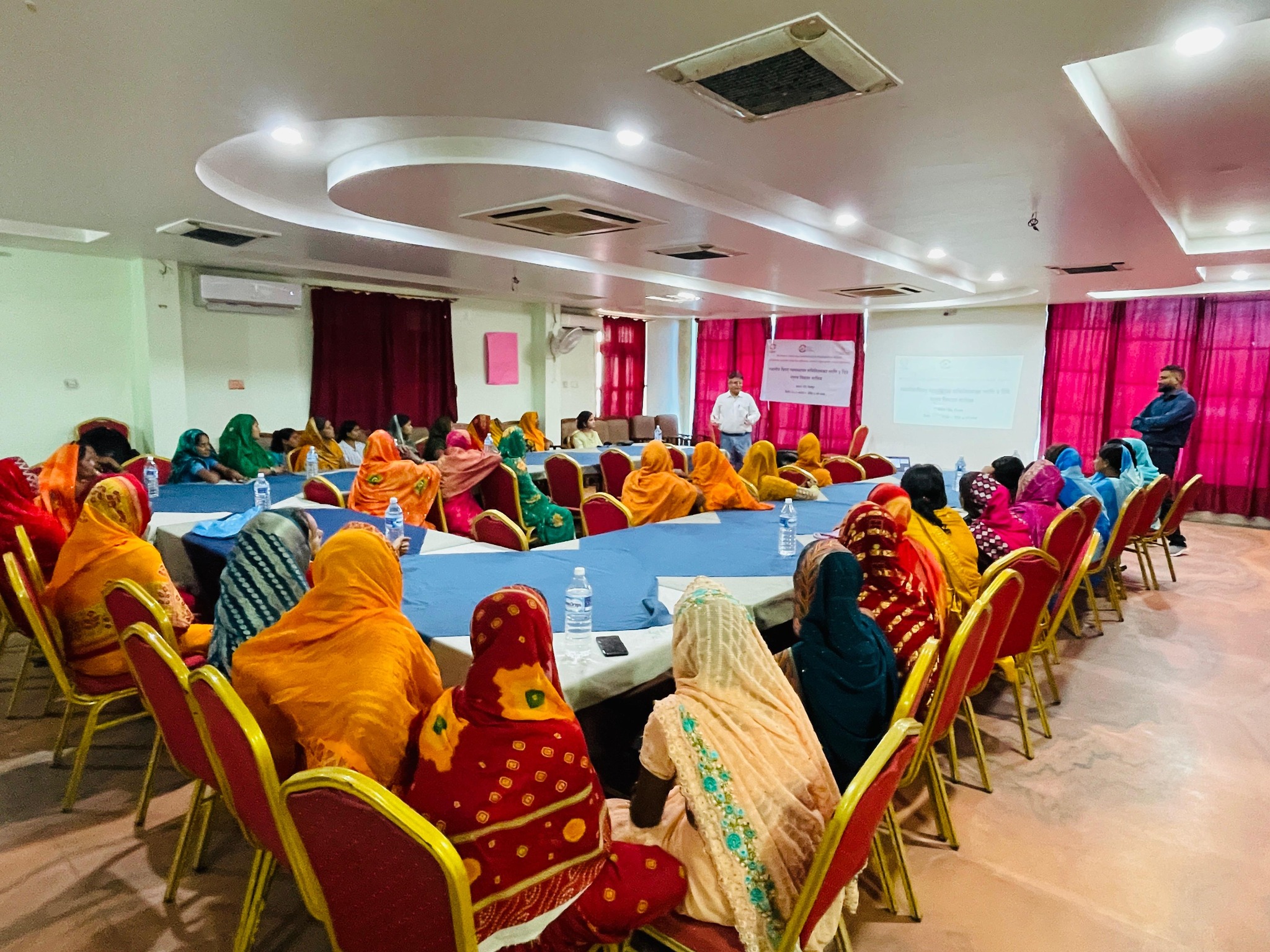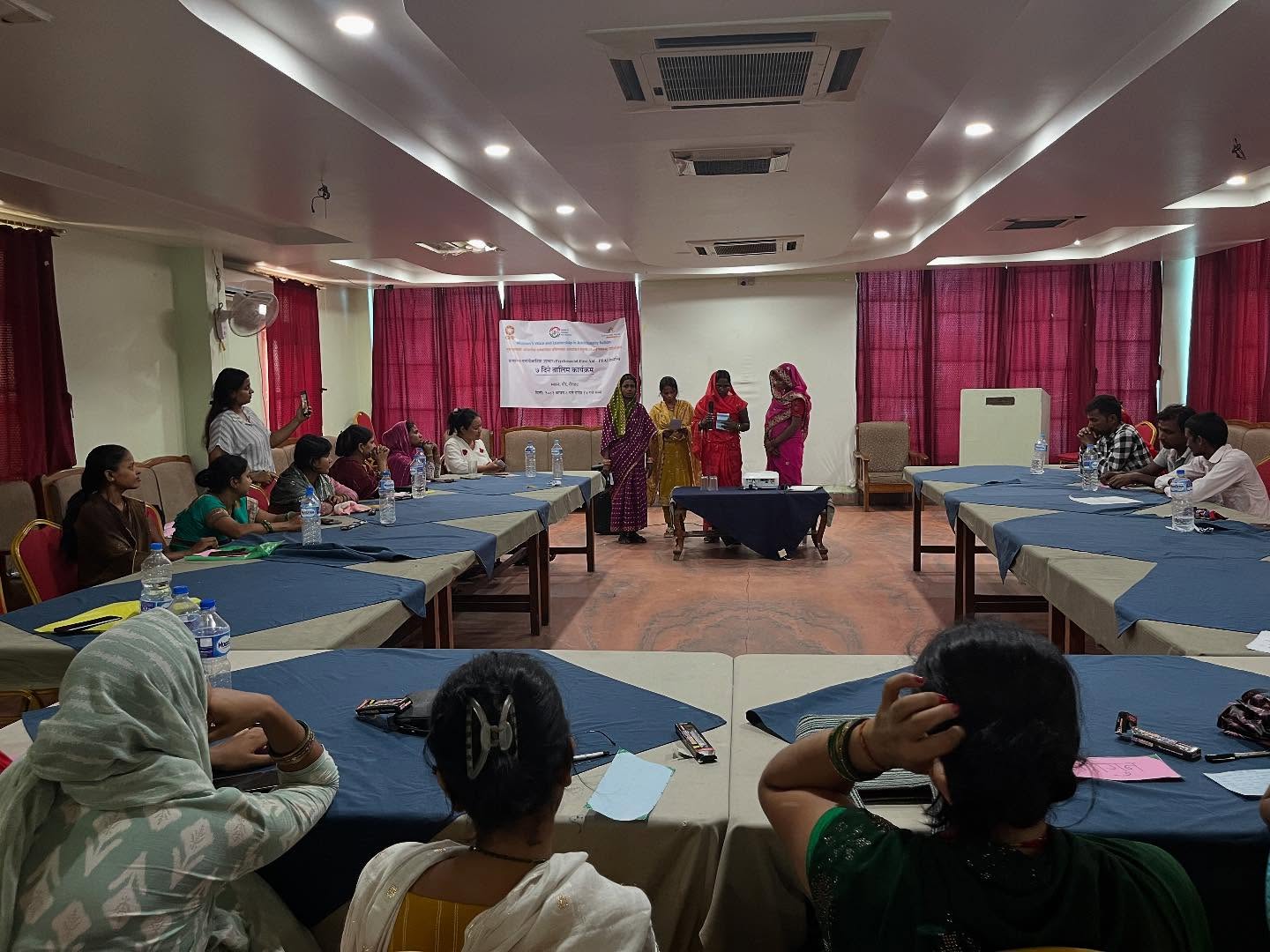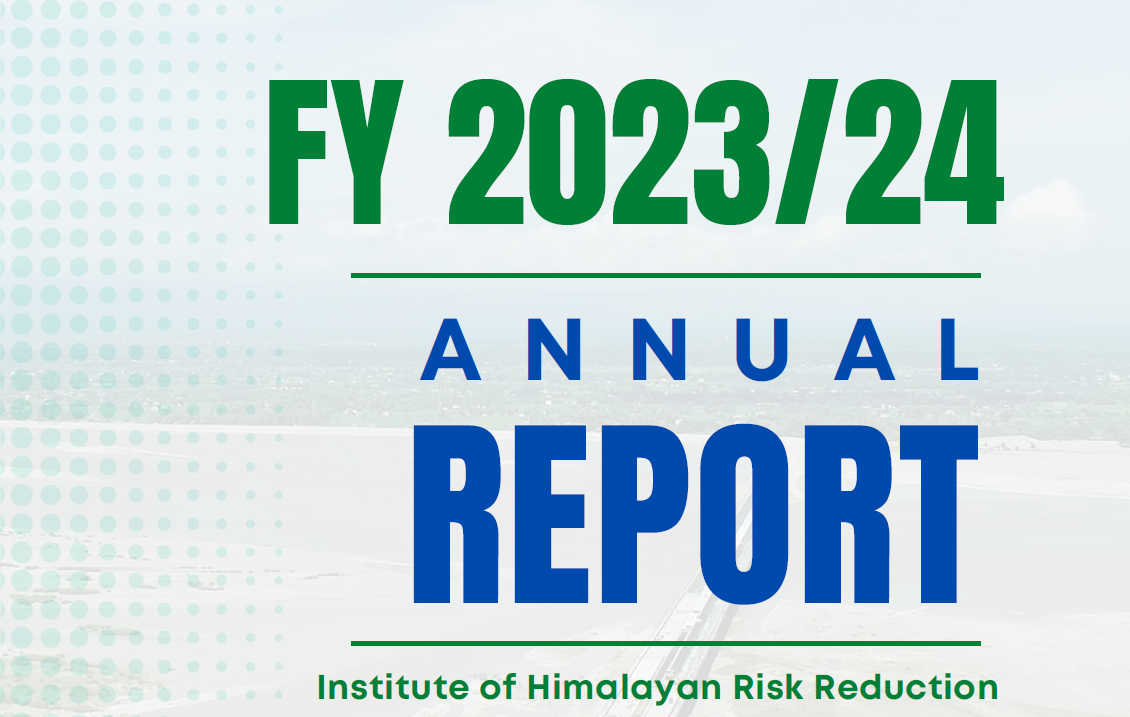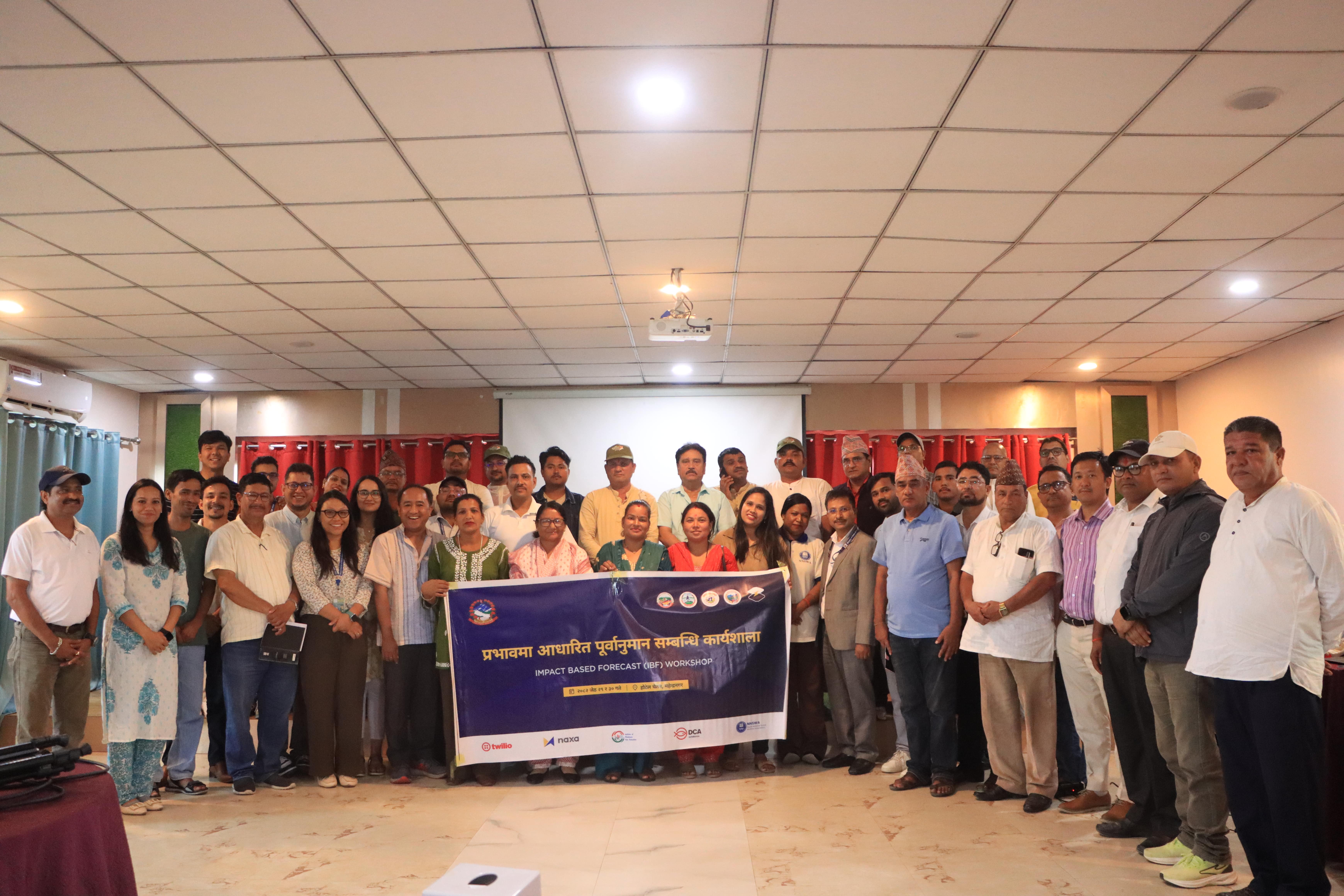On 13th August 2024, Institute of Himalayan Risk Reduction had the opportunity to participate in the "Nepal Humanitarian Strategy Workshop," hosted by GSMA at the Yak and Yeti Hotel. The workshop brought together a diverse group of stakeholders from both the humanitarian and private sectors, all united by a common goal: to explore and enhance the humanitarian landscape in Nepal.
The session continued with dynamic breakout discussions where groups delved into the role of digital technology in the humanitarian sector. Each group presented their findings, highlighting impactful digital innovations that can meet the evolving needs of Humanitarian Partners (HPs) and their recipients.
Earlier in the event, eSewa, Ncell, and Viamo kicked things off with compelling presentations showcasing their engagement in humanitarian efforts.
As a grantee of GSMA's "Act-First" led by NAXA in collaboration with Institute of Himalayan Risk Reduction, DCA Nepal, VIAMO and NNSWA, Er. Suraj Gautam shared insights from the project and engaged in dynamic discussions on the role of digital technology in humanitarian efforts.
The event concluded with a collaborative discussion on future opportunities, paving the way for innovative solutions that will enhance humanitarian impact in Nepal.
We are excited to continue contributing to these important conversations and look forward to the future of humanitarian efforts in the region.
Key Takeaways:
🌟Innovative Early Warning Systems: Enhanced systems integrating digital tools and community engagement for faster disaster responses.
🌟Collaboration to Forge Strategic Partnerships: Strengthening alliances to ensure a unified and effective approach to humanitarian challenges.
🌟Localization of Messages: Tailored communication strategies to resonate with local communities, ensuring critical information is understood and acted upon.
🌟Focus on Digital and Financial Literacy: Recognizing the need to increase digital and financial literacy, empowering communities to effectively utilize new technologies and financial tools.
🌟Community-Centered Approaches: Capacity-building programs that empower local leaders and volunteers for active community participation.
🌟Sustainable Solutions: Emphasizing scalable and potentially replicable solutions to drive greater impact.
🌟Inclusive and Data-Driven Decision Making: Tailoring interventions for different regions, ensuring no one is left behind.
🌟Innovative Early Warning Systems: Enhanced systems integrating digital tools and community engagement for faster disaster responses.
🌟Collaboration to Forge Strategic Partnerships: Strengthening alliances to ensure a unified and effective approach to humanitarian challenges.
🌟Localization of Messages: Tailored communication strategies to resonate with local communities, ensuring critical information is understood and acted upon.
🌟Focus on Digital and Financial Literacy: Recognizing the need to increase digital and financial literacy, empowering communities to effectively utilize new technologies and financial tools.
🌟Community-Centered Approaches: Capacity-building programs that empower local leaders and volunteers for active community participation.
🌟Sustainable Solutions: Emphasizing scalable and potentially replicable solutions to drive greater impact.
🌟Inclusive and Data-Driven Decision Making: Tailoring interventions for different regions, ensuring no one is left behind.
